We Spoke to NGOs About the Private Sector & Modern Slavery. This is What They Said
During the COVID-19 crisis, the Mekong Club reached out to community-based organisations (CBOs) and non-government organisations (NGOs) across Asia to better understand what was happening with workers on the ground. Many of these groups have implemented programs aimed at combating modern slavery through responsible recruitment, safe migration, worker rights, training, and worker grievance reporting.
They said…
“Many families now have problems getting their livelihoods.”
“The biggest problem we are seeing is debt. With no way to pay it back, family members are taken away.”
“The number of modern slavery cases increased within the communities that we have been working due to a lack of employment opportunities within a country. Every employment opportunity has been blocked due to the lockdown of the country and fear of covid-19 among the community.”
“Returning migrants don’t have jobs.”
“We are working with women in prostitution in Pattaya, Thailand and there has been an increase in people trying to take advantage and using the women.”
“We’ve seen an increase in online sexual exploitation, including parents sexually abusing their children and exploiting the videos online.”
“People with disabilities are recruited to join the temporary worker unit handled by agents to work in a factory to fill the labor shortage gap at a much lower price than minimum wages.”
“Recruitment agencies are now trying to get people to go abroad. They ask for big money to pay fees. It adds to their growing debt.”
It is clear that the COVID-19 pandemic has had a significant impact on workers and their livelihoods. We were keen to learn about how they felt the private sector may play a role in reversing these trends.
NGO Views on Modern Slavery and the Private Sector
During these exchanges, we also asked the following additional questions:
What are your views on modern slavery & the private sector?
If given a chance, what suggestions related to modern slavery would you provide to the private sector?
While some of the NGOs/CBOs reported that they had tried to engage with companies in the past, many said that these discussions did not take place because businesses see them as a threat. To help facilitate the process of allowing the NGOs/CBOs’ voices to be heard, the Mekong Club agreed to confidentially collect feedback and recommendations to pass along to the private sector in the following areas.
- Need for Improved Awareness-Raising of Respective Roles;
- Data Collection and Analysis;
- The Need for Trust;
- Private Sector as Protectors; and
- Supporting Survivors.
- Need for Improved Awareness-Raising of Respective Roles
Several NGOs indicated that they do not have a clear understanding of what the private sector does and how they do it.
They said…
The private sector is a mystery to me. I have my impressions of what they do and how they do it. But I don’t understand their world. I don’t think they understand us either.
I have heard the term supply chains, but I am not sure what this is. If it has something to do with workers, we have something in common. I would need to better understand this. The terminology we use differs.
I have heard many people talk about how the private sector doesn’t care about workers. Maybe they do, maybe they don’t. It is hard to say.
Businesses in all industries must be accountable for human rights violations.
They made the following recommendations…
- A debate can be an option for NGOs and the private sector to understand more of the common ground of each other.
- The NGOs and the private sector should find a way to learn about each other’s work. It would help to eliminate some of the confusion. I think there is a lot of misunderstandings. This would help us to work together.
- It would be good if the private sector and civil society could work to be part of a joint conference. We could share what we do and then see if we could find synergies.
- If I could talk to the private sector, I’d invite them out to see our communities. There is no better way for them to see the needs and the beneficial activities we do for people.
- Manufacturing and retail companies should support training for factory workers.

Data Collection and Analysis
Impressions: Several NGOs indicated that they thought civil society could be useful to the private sector because of their access to case information and data.
They said…
NGOs are in the field. We know what is happening on the front lines and in the communities. This information could be useful [to businesses].
We talk to workers every day. We know what they are facing. We write reports about this, but we don’t think the factories or companies read them. They think we exaggerate and make things up. But we don’t.
Companies have audit information. We have testimonials. If we were able to combine this data, we’d have the full picture.
They made the following recommendations…
- If I could talk to companies, I’d tell them to find better ways to reach the workers. Auditors can’t see things. They don’t know how to find things. We do. We could teach them.
- I dream of a day when all the information is collected and shared and studied. Everything we need is there. We just need to use it.
- Too many NGOs have data, but they don’t know what to do with it. We need training on this.
The Need for Trust
Several NGOs indicated that trust was absent between civil society and the private sector. Some felt this went both ways.
They said…
Factories want to make money. They will do whatever they can to cheat workers. This is the way it is. What can change this?
The businessmen think we do this work for ourselves. They think we raise money by making them look bad. We don’t. We care about the people. They don’t care.
I don’t know if I trust them or not. I don’t know them. They don’t know me.
I think we could work together if we knew each other.
They made the following recommendations…
- We need someone to act as a bridge between the two different audiences. Our worlds are very different.
- Someone needs to help us translate our approaches to the others.
- The problems are too big. We need the business people to work with us. Finding a way to do this should be a priority for everyone.
Private Sector as Protectors
Several NGOs indicated that the private sector could act as protectors in addressing modern slavery.
They said…
Hotel people are right there in the hotels. They see everything. They can protect people.
Even the banks can help. Traffickers do this to make money. If the banks follow the money, they can reveal the crimes.
They made the following recommendations…
- Hospitality staff could act as a watchdog to report suspected cases of human trafficking.
- Recognizing that child protection should be a positive part of tourism, businesses need to be aware of this and act, rather than this being an optional extra or a fringe subject.
- Financial and tech companies to improve detection and reporting of Online Sexual Exploitation of Children (OSEC).

Supporting Survivors
Several NGOs indicated that modern slavery survivors could greatly benefit from the private sector if programs could be put in place.
They said…
Trafficking victims don’t want shelters. They don’t want to sit in their villages. They want jobs. That is one thing I can’t offer.
The people who contribute to the problem should be part of the solution. They should help the victims.
This would be a good outcome.
The private sector would be real heroes if they helped victims. The media could talk about this contribution.
They made the following recommendations…
- Companies, like hotels, should consider employing survivors.
- For-profit companies can provide training for survivors in their sector.
- Illiteracy, lack of skill, and unemployment are a big problem for workers. Due to the desire for these things, they are trapped in slavery. In this situation, to make their lives better, we must collaborate and coordinate with the private sector.
- We need living wages for workers.
- Companies need a support or rescue mechanism to build up the defence line against modern slavery in their supply chain or company itself.
Conclusions
With less than one percent of the global victims being rescued annually, there is a need for more efforts to take place to respond to the problem. While many feel that developing a collaborative relationship between the business sector and civil society is not possible, the responses above indicate that there would be a willingness to explore this option. For this to happen, awareness would have to be raised, mechanisms would be needed to bridge the two sectors, and trust would have to be established.
Author – Matthew Friedman

